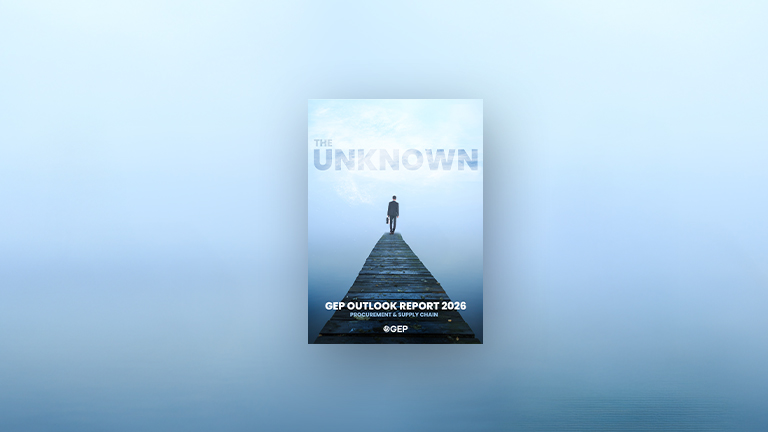
Why ESG Due Diligence Is Critical to Thriving Amid Growing Uncertainty
- ESG due diligence has evolved—from a checkbox to a business-critical function.
- Good ESG consultants don’t just report—they operationalize ESG across your business.
- Mastering ESG today can give you the edge in compliance, investment, and reputation tomorrow.
July 17, 2025 | Sustainability 6 minutes read
Let’s be honest—ESG due diligence sounds like one of those terms people nod along to in meetings… but don’t really know how to do well.
It used to be something legal handled before a merger—tick a box, scan a policy, done. But the game has changed.
Now, investors won’t move without it. Regulators are tightening the screws. And your customers? They’ve got expectations that go far beyond recycled packaging and a green logo.
If your business wants to grow, raise funds, or just avoid nasty surprises, ESG due diligence isn’t a nice-to-have. It’s a baseline. The only question is: how do you get it right?
That’s where ESG consultants come in. The good ones don’t just audit your reports. They dig deep. They help you turn vague ESG goals into something that’s measurable, practical—and improves your business.
Ready to stop treating ESG like a buzzword?
GEP can help you turn ESG due diligence into real action—so you can lead, not just comply.
What Is ESG Due Diligence, Really?
At its core, ESG due diligence is the process of evaluating how your business performs across three critical areas: environmental, social, and governance — which is precisely where quality sustainability consulting can deliver strategic value. But we’re not talking about soft metrics or marketing fluff here. We’re talking about the actual impact—on people, the planet, and your ability to stay in business.
Here’s a breakdown:
Environmental Factors
Carbon emissions. Energy use. Water consumption. Pollution. Biodiversity loss. If your operations touch the natural world—and they do—then this part of the due diligence tells the story.
Social Factors
This includes everything from employee rights and DEI to supply chain labor conditions, community relations, and customer privacy. These aren’t just HR issues—they’re potential reputational landmines.
Governance Factors
This is where leadership, accountability, and transparency come in. Are decisions made ethically? Is the board diverse? Are risks being escalated or buried? Weak governance can derail even the greenest of companies.
And yes, ESG due diligence involves a comprehensive assessment of a company’s practices—not just its policies.
What ESG Consultants Do
A good ESG consultant doesn’t hand you a report and disappear. They roll up their sleeves, get into the weeds, and help make sure your business isn’t flying blind.
Step 1: Initial ESG Risk Assessment
This isn’t a cookie-cutter template. Consultants assess material risks based on your sector, geography, and stakeholder exposure. They might use frameworks like Sustainability Accounting Standards Broad (SASB), Task Force of Climate Related Disclosures (TCFD), or Global Reporting Initiatives (GRI) to get started.
Step 2: Stakeholder Engagement & Data Collection
This means talking to the people who matter—your teams, your suppliers, your customers—and pulling data from every system that touches ESG. Interviews, surveys, audits—whatever gets to the truth.
Step 3: Gap Analysis & Benchmarking
Where are you versus your peers? Where are you versus where you need to be? A proper gap analysis isn’t just numbers—it’s a diagnosis.
Step 4: Action Planning
This is where the work becomes real. Consultants translate insights into actual roadmaps—with owners, milestones, and targets.
Step 5: Implementation Support
Plans are useless if they sit in slides. Good consultants embed ESG into your systems—procurement processes, reporting tools, staff onboarding, even investor decks.
Step 6: Monitoring & Reporting
You’ll need ESG reporting for investors, auditors, and regulators. Consultants help design metrics that align with Corporate Reporting Sustainability Directive (CSRD), The US Securities and Exchange Commission (SEC), or whatever’s next.
They also ensure you’ve got a solid ESG due diligence checklist in place, so you can scale and repeat the process.
Ready to Elevate Your Procurement Function?
Discover how leading organizations are building smarter, more resilient procurement teams—starting with the right pillars.
How to Make ESG Due Diligence Work
Plenty of companies do ESG due diligence. Few do it well.
Here’s what makes the difference:
Stay Updated on ESG Trends and Regulations
Whether it’s International Sustainability Standards Board (ISSB) harmonization or SEC climate rules, effective ESG due diligence requires staying ahead of the curve.
Engage With Companies and Stakeholders
Don’t just talk about stakeholders—talk to them. That includes employees, suppliers, customers, even communities.
Build a Structured Framework
Use one that fits. For financial institutions, TCFD might be the right move. For manufacturers, SASB. The goal is consistency—so you’re not starting from scratch every time.
Conduct In-Depth Analysis
Don’t just rely on dashboards. Get under the hood. That means supplier audits, operational data checks, risk modeling, and stress tests—especially around climate.
Integrate ESG Findings into Decisions
The point of ESG due diligence isn’t just risk avoidance—it’s better business. Integrate ESG into procurement, investment, hiring, and long-term planning.
Use Real Data Sources
Consultants tap into multiple layers—internal systems, global databases, AI-powered ESG tools, satellite imagery. Yes, really.
Push for ESG Improvements
The best ESG strategies don’t just protect—they improve. Consultants help you find the ESG risks and opportunities that unlock long-term value.
Why Bother? Here’s What You Actually Get
Outcome | Why It Matters |
|---|---|
| Legal Risk Reduction | Spot non-compliance before regulators (or journalists) do |
| Investor Readiness | ESG is a screen in most capital decisions now |
| Trust That Pays Off | Customers, employees, and partners all want transparency |
| Better Operational Decisions | ESG due diligence often reveals inefficiencies and blind spots |
| Supply Chain Resilience | Identify and fix supplier risks before they explode |
| Competitive Advantage | ESG maturity can win you bids others won’t qualify for |
According to GEP’s Outlook 2025, over 70% of procurement leaders are prioritizing visibility into enterprise-wide spend. ESG sits squarely at the heart of that.
What Makes ESG Due Diligence Hard
You’re not imagining it. Conducting ESG due diligence isn’t simple. Here’s why companies struggle:
1. Too Many Reporting Standards
From GRI to SASB to TCFD, there’s no universal playbook. That’s changing—but slowly.
2. Data Gaps
Especially in supply chains. Many vendors don’t track ESG metrics—or don’t know how to.
3. Regulatory Uncertainty
Laws shift. Definitions evolve. What counts as “material” today may not tomorrow.
4. Not Enough Internal Expertise
Most businesses weren’t built with ESG in mind. Hiring and training teams takes time.
The Trends Shaping ESG Due Diligence Right Now
Here’s what you need to know looking ahead:
ESG Reporting Is Getting Standardized
ISSB, CSRD, SEC, and more are all moving toward convergence. One set of books—not five.
Climate Is Now Front and Center
From mandatory climate risk disclosure to net zero transition plans, this is now non-negotiable.
Regulators Are Moving Fast
And they’re not bluffing. Penalties for greenwashing are real—and rising.
ESG Is Tied to Financial Performance
It’s no longer just correlation. We now have evidence linking ESG maturity to lower volatility and higher returns.
Getting Ready
Let’s cut through the noise.
The importance of ESG due diligence isn’t about looking good. It’s about being ready—ready for growth, for scrutiny, for opportunity.
And if you want to be ready? Bring in someone who knows what they’re doing. ESG consultants help you build the systems, processes, and mindset to not just comply—but lead.
FAQs
What’s the first step in conducting ESG due diligence?
Start with a risk and materiality assessment. Use a recognized framework like SASB or TCFD. Then build a structured approach around it—focusing on what’s most relevant to your business and industry.
What is due diligence in sustainability?
Sustainability due diligence means checking whether a company is causing harm to people or the planet—through its operations or supply chain. It’s about ensuring they uphold human rights, environmental standards, and responsible business practices.
With regulations tightening, companies are now expected to prove they’re walking the sustainability talk—not just claiming it.
What is the due diligence approach in ESG?
ESG due diligence is all about checking how a company handles environmental, social, and governance issues—before you invest or partner with them. It looks at things like carbon footprint, labor practices, and board ethics to spot risks that might not show up in financials.
Today, it’s a must-have step for investors who want to avoid reputational damage and make smarter, long-term decisions.
How do private equity firms implement ESG due diligence?
Private equity funds weave ESG checks right into their investment process. Before putting money in, they look at things like climate risks, labor practices, and governance standards. They often use tools or frameworks like TCFD to guide the review. If red flags pop up, that can affect whether or not they go ahead. Even after investing, they keep an eye on ESG performance to drive long-term value.
Sure! Here's a shortened version of both answers while keeping the conversational tone:



